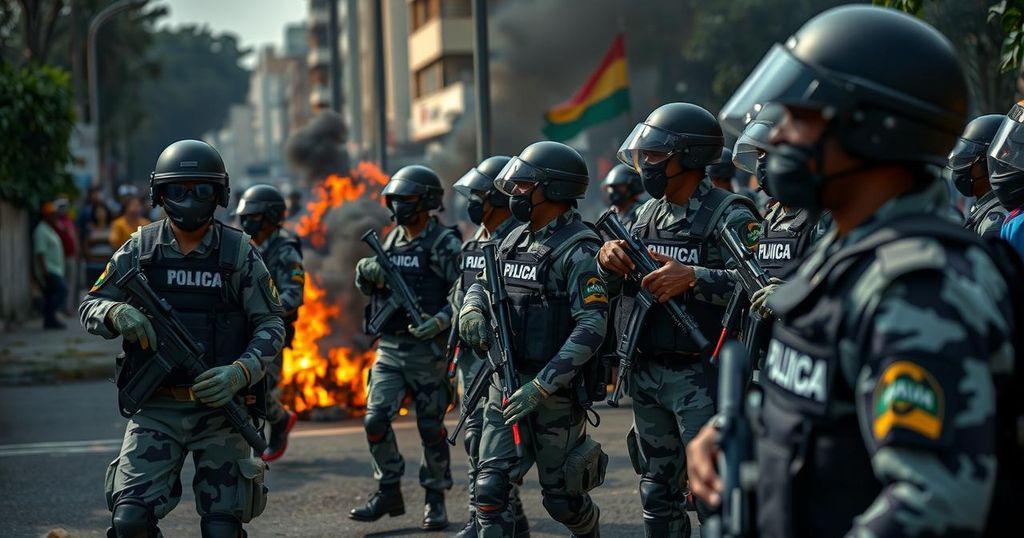Politics
AFRICA, ANTONIO, ANTONIO JUAQIM, BBC, COMMISSION, DANIEL CHAPO, DEMOCRACY, ELECTIONS, FR, FRELIMO, MANUEL SAMUEL, MAPUTO, MON, MONDLANE, MOZAMBIQUE, OPPOSITION, PROTESTS, RENAMO, SAMUEL, SAO FRANCISCO XAVIER, SÃO FRANCISCO XAVIER CEMETERY, VE, VENÂNCIO MONDLANE, VIOLENCE
Leila Ramsay
0 Comments
Mozambique Election Protests: Tragedy and Demand for Change Amid Police Violence
Mozambique faces a severe crisis following the recent presidential election, with police violence resulting in the deaths of at least 40 people, including numerous children. Protests have erupted across the capital, marked by citizens banging pots and pans to express their dissent against the ruling Frelimo party’s authority. The tragic killing of young protesters illustrates the escalating tension and demands for political accountability in the nation.
In Mozambique, a series of protests following the recent presidential election has led to tragic violence, including the deaths of young protesters. Mourners in Maputo gathered to lay to rest 16-year-old Antonio Juaqim, who was shot during a demonstration against the electoral results that saw the ruling Frelimo party declared the winner. Eyewitnesses, including family members, assert that police fired on demonstrators, and reports indicate that around 40 individuals, including at least ten children, have died in the unrest. Many citizens have since taken to banging pots and pans in nocturnal protests to voice their dissent against the continuation of Frelimo’s nearly five-decade rule. Amidst accusations of excessive force and claims of vigilante violence, the political situation remains tense, as the promise for a more equitable future grows dim for the nation’s youth.
Mozambique is grappling with a politically charged atmosphere following its latest presidential election, where the ruling Frelimo party was widely criticized for alleged electoral malfeasance. The violence that ensued during protests should be viewed within the context of frustration among citizens—especially the youth—over lack of economic opportunities and the perceived disconnection of the ruling party from the needs of the populace. The unfortunate deaths of young demonstrators like Antonio Juaqim have sparked calls for accountability from both civil society organizations and opposition leaders, highlighting a growing sentiment that the political landscape must change.
The ongoing unrest in Mozambique underscores the urgent need for dialogue and reform in response to the citizens’ demands for justice, accountability, and economic opportunities. As tragic as the loss of young lives is, it also ignites a formidable call for political change that resonates across generations. Observers are urged to pay close attention to developments in this southern African nation as both the state and its citizens navigate through this profound crisis.
Original Source: www.bbc.com




Post Comment